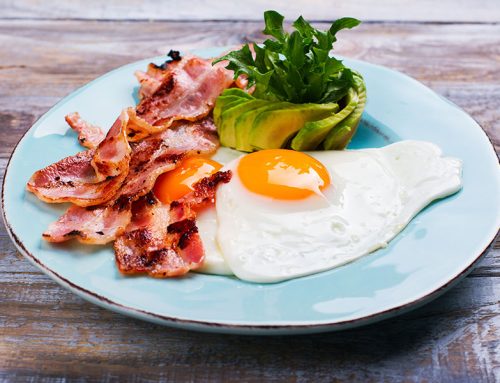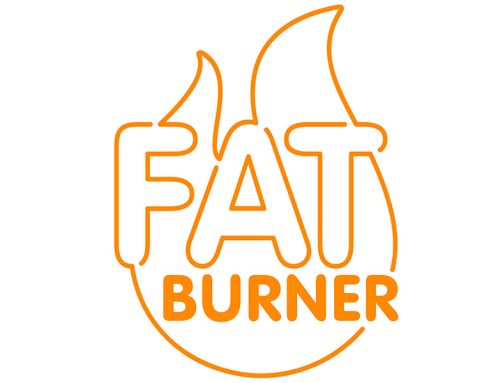If I told everyone who walked into my offices that if they exercised 30 minutes a day they’d double their weight losses, I have no doubt that no one would so much as blink, and many a gym shoe would be sold. Yet when I tell people that in order to double their losses they’ll need to spend no more than 3 minutes a day keeping a food diary, I might as well be putting needles in their eyes given the pain and anguish I regularly see flash across their faces.
If Your Food Diary Takes You More than 3 Minutes a Day You’re Doing it Wrong
What is it about 3 daily minutes of food diarizing that strikes fear in the heart of dieters who’d happily commit to 30 daily minutes of sweating? The answer lies with the difference between perception and reality as well as with the burden of pre-existing belief.
For most, the perception of food diarizing is one of painstaking tedium fueled in part by the underlying belief that a food diary’s job is to meter out unflinching and brutal judgment. Of those two diarizing lodestones, the first is just plain wrong, while the second is terribly misguided.
Let’s start with the tedium piece. First off I think even the most hardcore anti-diarizer would find describing 3 minutes of any sort of effort “tedium” to be a stretch. True tedium, when considered honestly, would necessitate a great deal more time than just 3 minutes a day. And as far as the actual effort involved goes, things sure have gotten easier.
Whereas when I first opened my offices’ doors in 2004 and food diaries were truly handwritten affairs, nowadays there are smartphone apps to do all of our food diary heavy lifting. These apps invariably come with built in food databases, and of course remember what you’ve eaten in the past leading users to eventually not need do more than select a recurrent choice from a pre-populated drop down list.
And given our current technologies, even from scratch calculations take minutes at most – whether its entering your recipe into a computer program to crunch calories for you (like Mastercook for PCs or MacGourmet for Macs), or entering in each ingredient into a website like calorieking.com and simply adding them all up and dividing by servings, I’d wager at most it would take 5-10 minutes a day – a way easier 5-10 minutes than were you spending them doing high intensity interval training for instance, and unlike HIIT, you’ll only need to do it once to derive benefit as once each recipe is crunched the first time it will forever remain in your app’s database.
So what of judgment? Aren’t food diaries there to ensure people are “accountable”? Technically, I suppose so, except at some point society decided that when it came to weight management the word “accountability” referred to always feeling guilty if your calories were high or your choices indulgent. But food of course isn’t just fuel. As a species not only have we been using food for comfort and celebration since the dawn of time, it’s also the world’s oldest social network, and it’s perhaps the most stable source of pleasure in our lives. Consequently guilt is not an appropriate emotion for choosing to use food for purposes other than fuel.
Calories aren’t meant to be stuck in gymnastic-like perfect number landings. Ultimately our job from a health perspective is to consume the healthiest diet that we can enjoy, and if weight is a concern, the smallest number of calories that we need to like each day. Just as every day is different, so too will be that smallest number. Some days are simply worth more calories and a food diary isn’t capable of deciding that for you.
To understand what I’m getting at, consider money. There are many considerations before making a spending decision. For instance, before making a purchase it would be wise to know how much money you have in the bank, how much you make each month, and how much something costs – but you’d also want to know what and who the purchase was for, whether or not it was a special occasion, when the last time you splurged was, and so on. So too with food.
Calories are not meant to be the sole determinant of whether a food is worth it or not. Nor is your weight, or your health. In fact I’d argue there are likely dozens of considerations that should be taken into account when considering if an indulgence is, “worth it”.
That said, at the end of the day calories are in fact the currency of weight. Sure the exchange rate may vary a bit with different types of foods and between individuals but at the end of the day, gains occur with bio-available caloric excesses and losses with deficits, and just as if you’re spending money, it’s crucial before you do so that you consider your purchases’ price tags even if you don’t know the exact currency exchange rate. Ultimately, food diaries are there to inform and guide your next dietary decision, never to make it.
Studies involving food diaries are very clear. Those who keep them lose more weight than those who don’t, with some studies suggesting a few minutes a day of food diarizing doubles a person’s losses.
Personally I haven’t missed a day of food diarizing since May 7th, 2011 and if it takes me more than a minute a day to keep mine, I’d be well and truly shocked. Given I’ve already crunched the numbers on everything I eat regularly, diarizing only involves the few seconds per meal and snack that it takes me to choose from my drop down lists, and on those rare occasions I eat something genuinely new I’ll spend a few extra seconds looking it up, or simply add a straight calorie value
without a description as if it’s a food I’m rarely eating, why waste time typing in all the details?
At the end of the day, what stops people from using food diaries isn’t time or tedium, it’s misplaced beliefs and false perceptions and I’ll tell you, if weight is a concern, 3 minutes of effort a day to lose twice as much weight and keep it off – well that’s a ridiculously fair price to pay.
Editor’s Note: If you enjoyed this article, you will enjoy Yoni’s New book, The Diet Fix, available in bookstores everywhere and on Amazon.com: http://www.amazon.com/Diet-Fix-Diets-Fail-Yours/dp/0804137579
About the Author
 Yoni Freedhoff, MD, is an assistant professor of family medicine at the University of Ottawa, where he’s the founder and medical director of the Bariatric Medical Institute – dedicated to non-surgical weight management since 2004. Widely known as Canada’s most outspoken obesity expert, Dr. Freedhoff sounds off daily on his award-winning blog, Weighty Matters, and you can follow him on Twitter Dr. Freedhoff’s latest book is The Diet Fix: Why Diets Fail and How to Make Yours Work.
Yoni Freedhoff, MD, is an assistant professor of family medicine at the University of Ottawa, where he’s the founder and medical director of the Bariatric Medical Institute – dedicated to non-surgical weight management since 2004. Widely known as Canada’s most outspoken obesity expert, Dr. Freedhoff sounds off daily on his award-winning blog, Weighty Matters, and you can follow him on Twitter Dr. Freedhoff’s latest book is The Diet Fix: Why Diets Fail and How to Make Yours Work.






I totally agree! I use (and love) the free my fitness pal app and it really only does take a few minutes a day after you get your meals set up and a frequent foods list going. I find that I do and feel much better when I use it regularly. Sometimes I will skip a day but I just navigate back to that day and enter it while I’m entering everything for the current day.
There’s a web version as well but the app seems to work a lot better. I have tried several and this one is by far the best functioning and looking one I’ve found. You can log exercise, meals, view nutrition info for each day and for the week and also see a weekly graph of your total calorie intake (which I really like because it’s much less stressful for me to make sure my calories balance out by the week vs day to day, that way if I do have a not so great day I don’t beat myself up about it as badly lol), track weight and measurements, view projected weight loss by the what you’re entering, etc. It has been super helpful to me and I hope it can help someone else! :) Heather
Well said. Here are some similar thoughts I expressed recently in the BFFM Inner Circle…
Hi Jan –
Sure, I’m happy to elaborate. My premise is that part of what we hate about counting calories is how we feel depleted, drained of energy, hungry, frustrated and famished. Of course, all of these feelings are really the result of DEFICIT calorie levels, perhaps too much deficit for too long. They are the old familiar painful starvation feelings. But, most people only count calories when they are trying to create a deficit. So, it is only natural, that over time, they may inadvertantly begin associating the negative sensations of hunger, with Calorie Counting itself.
It works the other way too. My grandpa was a cigarette and pipe smoker. My fond childhood memories of him include the scent of Marlborough cigarettes and pipe smoke. To this very day, if I smell these, I feel good and remember him. Of course, smoke is nasty, filthy, and noxious, but my emotional association of that smoke to positive things remains strong. It’s not logical, its subconscious association.
It works the same way with other tasks. Take Budgeting for example. I know a lot of people who HATE to make a budget. Sure, the process may not be a ton of fun, but the HATE for the task goes well beyond the effort required to make a budget. My hypothesis is that people making budgets are often trying to deal with a financial situation where they feel like they have more expenses than they do income. Thus, the budgeting process becomes emotionally associated with the feelings of LACK, of being poor, perhaps of being a poor provider – all very negative feelings for sure. If such emotional associations form with the idea of budgeting, then people hate not only the budget but all of the subconscious feelings that go along with it.
Here, is what I am suggesting. Imagine the same budget hater, got a huge raise, won the lottery, or had an investment pay off beyond their wildest dreams. That person would now be in a state of financial surplus. If the first time they were ever introduced to a budget, was to figure out how they were going to enjoy all of that cash, then the emotional associations with budgeting might be quite different. It could be looked at as a way of maximizing their enjoyment of their extra cash. Figuring out what would bring them the most pleasure! That is a far different exercise than budgeting from poverty.
So, to extend the concept, calorie counting is a lot like budgeting. We often only calorie count when we are depriving ourselves, and the negative subconcious associations with calorie counting get intertwined with the negative feelings of being deprived. No wonder people HATE the idea of calorie counting. It is something they do that brings them pain.
What I am suggesting is that they try Calorie Counting at some point when their objective is to gain muscle. Counting calories during a SURPLUS phase is still counting calories, but the feelings are completely different. You may be figuring out the most muscle promoting way of eating a 10% surplus of calories. Your food options are broader and include things the most people like, more carbs, more healthy fats, more yummy goodness.
I am betting that it is not the Counting Calories itself that people hate hate hate. Trying the same exercise during a surplus phase could begin breaking down the negative association that is so easily made. Just being aware of the negative association is a start. But actively practicing the dreaded task during a time of abundance takes some of the negative feedback out of the picture.
Aside from the discipline to keep records, calorie counting is not inherently painful.
Eating far fewer calories than your body is burning is a guaranteed way to feel hungry, out of energy, and a host of other negative outcomes. I am just highlighting the distinction between counting and dieting.
Wow, a great article (love the 3-minute ‘hook’!) followed by two top-notch comments packed with helpful information. What a great start to another fat-burning, muscle-feeding day!
I also use Myfitnesspal, and I journal my workouts and food daily using the apps and website. These free tools are a testimony to the benefits of technology. I, too, started keeping a diary years ago and spent hours and hours creating my own automated excel spreadsheets of commonly eaten foods and important formulas to keep me on the fat-burning path. I must admit that my entries often take more than three minutes a day, but this is only because I am constantly experimenting with various recipes to create healthy, tasty, low-calorie, satisfying foods. Regular meals, however, are a snap to input and it doesn’t feel like a burden at all anymore.
Brian’s comment really hit me in the head, though. After losing 23kgs by following the BFFM principles I was convinced of the power of keeping a diary. However, when I started bulking again I abandoned the food journal. I would still keep meticulous track of my workouts, but I would just guesstimate my food intake based on my assumption that it would be okay as I was in a surplus. Surprise, surprise – though I gained muscle, it was totally covered in fat! No doubt about it, I am prone to being much too generous when I am not weighing my food and tracking my calories.
This started a cycle. I would join another BFFM contest, start keeping a food diary again and voila, the fat would melt away again. I repeated this a few times. In fact, that’s exactly what I’m doing right now! Cutting is tough enough, but cutting a lot of excess fat is really not my favorite activity!
After reading Brian’s comment, I understood exactly why I abandoned the diary when I switched to surplus. I do associate it with cutting and having to be stingy with the numbers. I know how powerful a diary can be in stripping away fat while keeping or increasing bulk, so why not harness this power in building muscle WITHOUT the excess fat!! So obvious, but sometimes it takes a whack on the head (thanks, Brian!) for it to sink in. I am now looking forward to April 12th (the day I finish the 98-day New Me challenge). Not only will I be at 6% body fat, but I will also be starting on another bulking phase. This means more energy in the gym, more power, more food!! However, this time I am not going to deprive myself of the pleasure of keeping a food diary. I am looking forward to dividing up the more generous bounty into well-planned muscle-feeding fuel. Then I won’t have to go through the lengthy cutting phase again to see the results of my work.
Burn (and journal) on!
Already doing it! I use Fitday.com — been using it for awhile and have a big database of custom foods (along with the database they already have). If you’re completely honest about your eating — weighing and measuring and putting valid amounts in your diary, you’ll know exactly where you are.
May you please recommend an App for food diary?
This was a great article – I am so happy when someone explains that food is meant to taste good as well as nourish the body. I especially liked this:
“As a species not only have we been using food for comfort and celebration since the dawn of time, it’s also the world’s oldest social network, and it’s perhaps the most stable source of pleasure in our lives.”
Fantastic. Foods are meant to be enjoyed, but they also must be accounted for or problems occur. The truth is that everything in life is meant to be enjoyed in moderation and in the right context. If certain rules are not adhered to bad things tend to crop up.
Really loved this one.
Jay